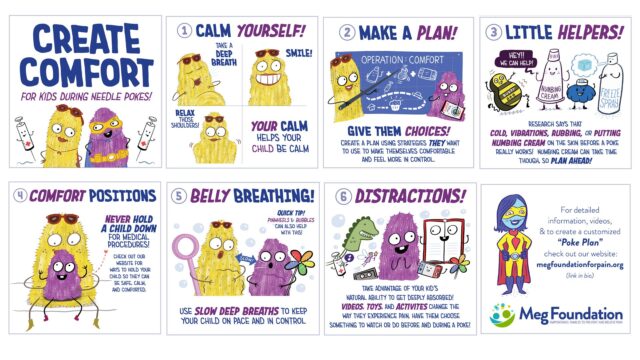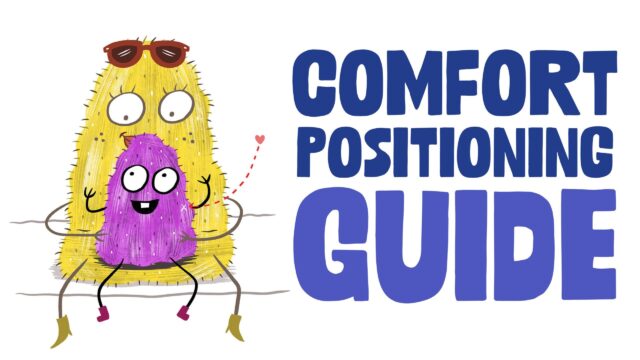A Meg Foundation Success Story: Emi’s Journey Through Cancer to Recovery!
A dose of inspiration, a look at the long-term impact of good pain management skills, and why we do what we do!
Jody Thomas, PhD
Babies & Toddlers (0-2) Kids (3-11) Needle Pokes Acute Pain Procedural Pain English
Share this:
In case you are new here, let me give you a little background. A few years ago, we put out a video featuring an amazing little girl named Emi and her rockstar family. We interviewed her incredible mom Ines about their journey through Emi’s cancer diagnosis and treatment, and how the skills that the Meg Foundation taught them impacted their experience. (She also wrote this blog post!) Their story captures many of the reasons why we do the work we do here at the Foundation. If you haven’t seen this short but amazing video, I suggest you take a second to watch it. It’ll definitely improve your day, and I promise it’s worth it.
Amazing, right? Inspiring. As you can imagine, one of the most common questions we get after that video is “HOW IS EMI???“. Well, I’m pretty darn thrilled to say she is doing AMAZING. Fantastic even. So we figured it was time for an update. Her mom was happy to oblige!
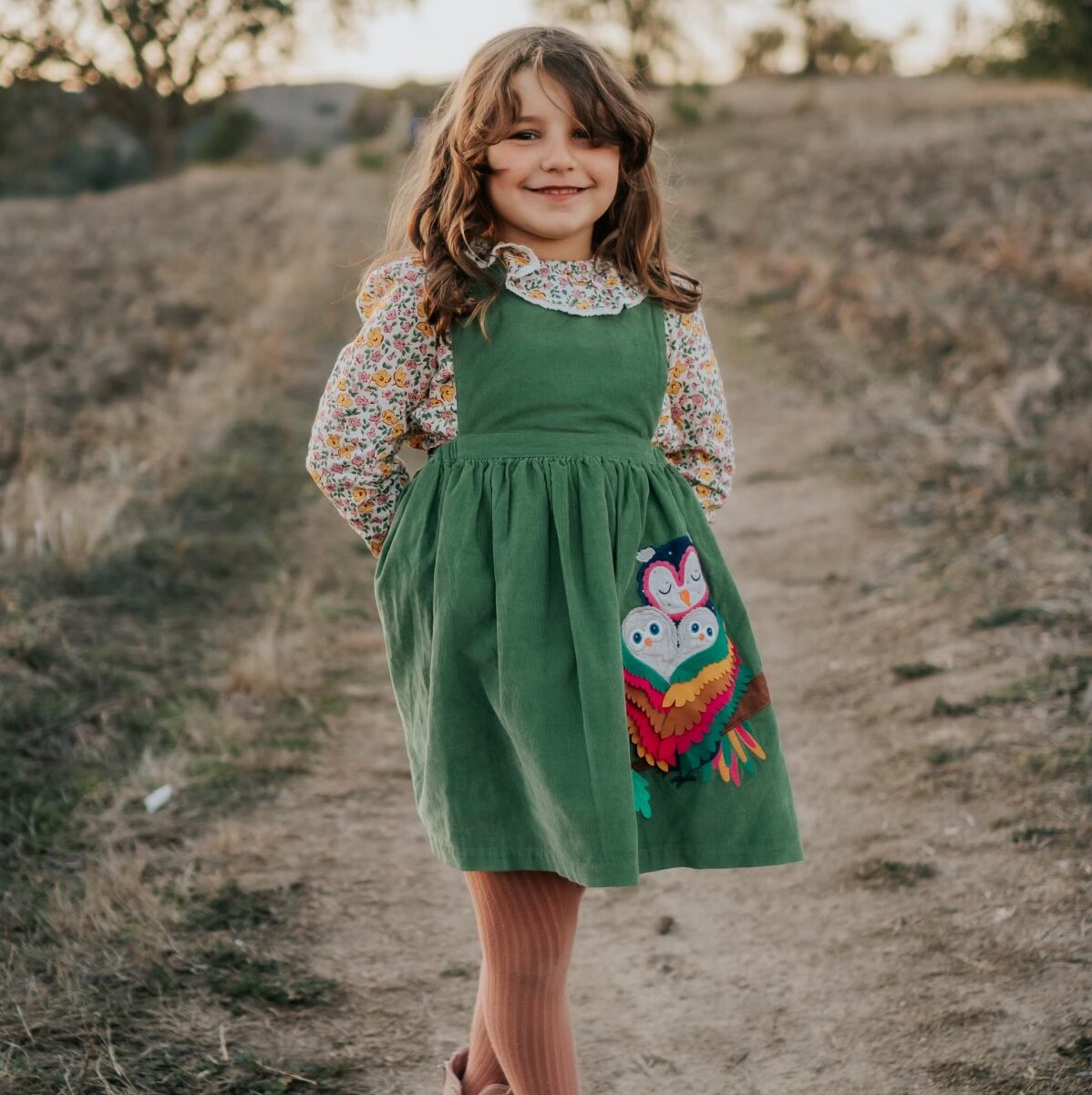
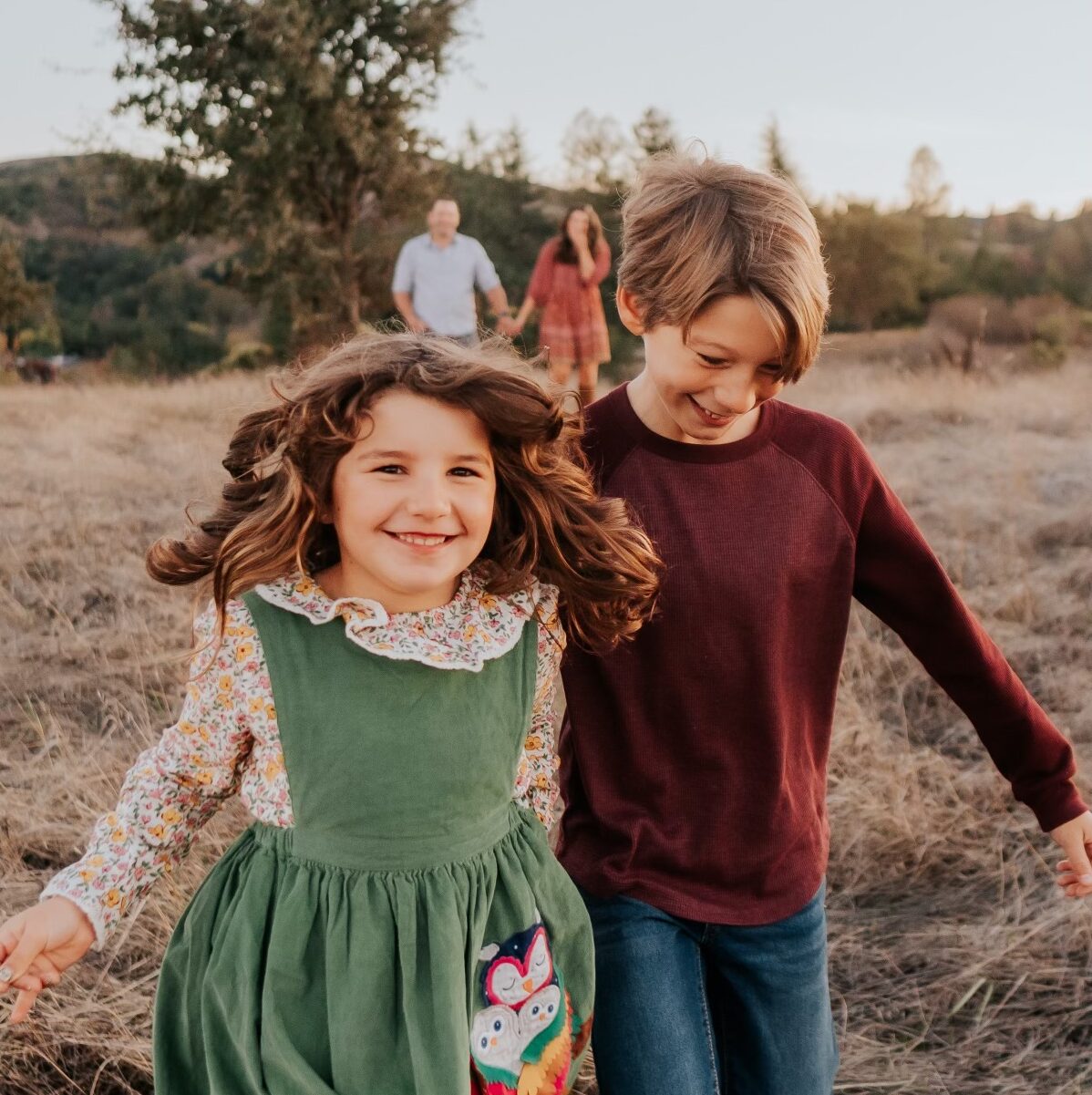
Here is what she had to say about Emi:
“Emi has been out of treatment since September 2021. We go to the doctor and get blood draws very 4 months, which is a significant decrease from getting bloodwork done sometime multiple times in a week! Very soon we’ll go down to check up every 6 months! Yay! Visiting the doctors is a total breeze, she just plays and shows zero anxiety around them! Emi has very little anxiety before getting her blood draws. She has a super clear plan and frequently tells her friends that “all you have to do” is look away, thinking of something you like, take deep breaths and count to ten =). On top of that, Mom brings Buzzy, makes sure she is super hydrated and puts Emla (numbing cream) on her an hour before the procedure! We call all these steps Emi’s team and her homework to help the pokes not hurt. We wouldn’t have known to do ANY of these steps if not for the help of the Meg Foundation!
Emi is in first grade, has plenty of friends and is a growing to become super creative, smart, kind, fun young girl! She is brave and outgoing, while also very perceptive and kind. She is both sporty and artsy loving both her soccer club practices as much as her singing classes (she will be doing her first singing performance next week at the local library!). She is obsessed with cats and loves everything Christmas (much like her mom).
We are so thankful for the Meg Foundation, we truly believe had it not been for the tools they gave us, Emi would not be the spirited, brave, social, loving girl she is today. “
We are so thankful for the Meg Foundation, we truly believe had it not been for the tools they gave us, Emi would not be the spirited, brave, social, loving girl she is today.
– Emi’s mom, Ines
WHOOOO HOOOO! We live for stuff like this.
Emi and the whole family continue to be massive sources of inspiration to us, and continuing with our goal of eliminating needless pain and suffering. We want every child to have the skills and support Emi has, and more importantly, the same outcome.
But here is the reality: stunningly few children with major disease diagnoses like cancer have Emi’s experience of feeling empowered and in control around medical procedures. Only a small minority of parents are taught the skills Ines learned in order to protect Emi from preventable pain and distress.
I’ve spent a career treating people who had the opposite of Emi’s experience. The treatment of cancer and so many diseases includes repeated painful procedures which stress the body and the mind. The treatment itself often has pain as a side effect. Post Traumatic Stress Disorder is extremely common, and medical procedures can cause significant anxiety and distress, and even trigger PTSD reactions.
Hundreds of patients that have survived major childhood disease have sat on my psychologist couch and told me their stories of pain, fear, and anxiety that sticks with them years later. We spend months, if not years, working to help them gain a sense of control over their body and their experience. I distinctly remember one particularly articulate 27-year-old woman. She had survived a vicious form of bone cancer in her teens but had been plagued by anxiety and PTSD ever since. At one point in our discussion, she looked me dead in the eye and said, “Where the hell were you when I was going through treatment? I should have been told all this back then.” She was right. Had she known back during her cancer battle what I was teaching her then, she would not have suffered so intensely for years. Honestly, it was a powerful moment for me that motivated the founding the Meg Foundation. She didn’t truly need exactly me, but she did need what I know, and that we can deliver.
The root of trauma lies in feeling helpless, incompetent, and uncertain in the face of a perceived stressor or danger. That’s true on the battlefield or the hospital or a medical procedure room. That is why empowering people with skills and information at the moment they feel so vulnerable is so impactful. It doesn’t change the stressor, but it totally changes our perception of our ability to handle it. With the right skills, we don’t feel helpless. We don’t feel incompetent. Instead, we feel certain that we can find a way to rise to the challenge.
It is a massive stressor to be faced with potentially painful and repeated medical procedures. It is a massive stressor for a parent to have to support their child through the disease treatment process. Emi and her family came through without that trauma because they learned the skills when they needed them: at the beginning of her treatment process before the trauma can take hold. Every child and family should have that opportunity. That’s our mission, and we have an amazing team of experts and professionals working on continually better ways to do just that. But honestly, if you are readying this, we need your help.
Whether it is by sharing our tools, giving us your valuable feedback, or by donating your charitable dollars, we hope you consider taking the time to help us with our mission so we can help more families and children just like Emi! Let’s do this!
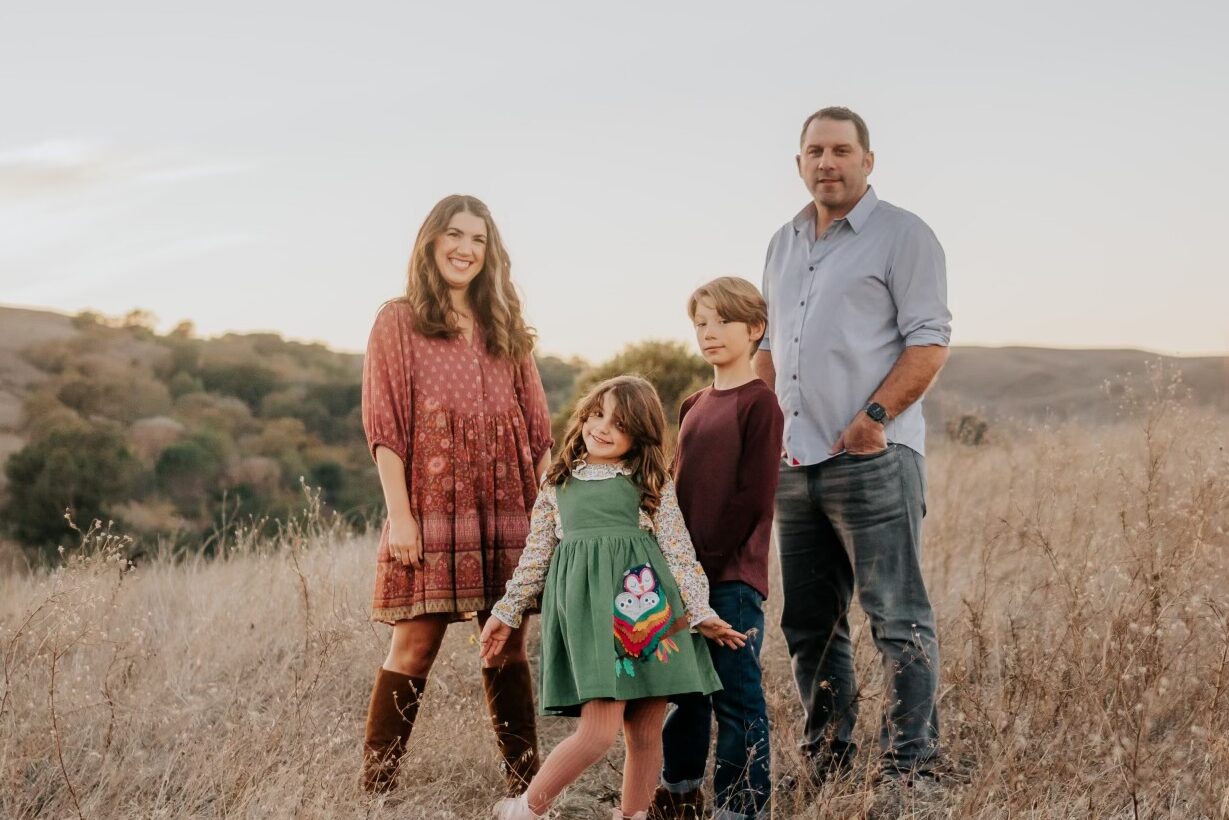
You May Also Be Interested In
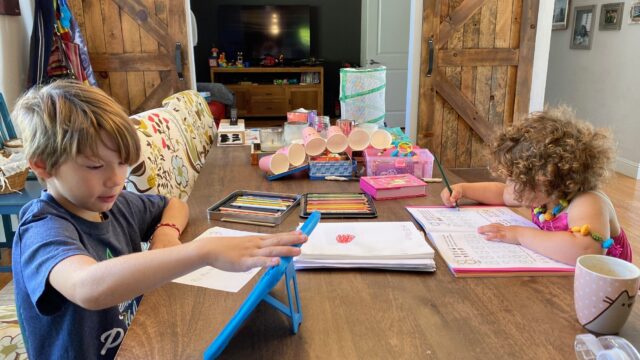
Blog Post
Lessons From the Trenches: Tips for Getting Your Family Through Uncertain Times
How the lessons we’ve learned through my daughter’s cancer journey could help your family get through COVID-19.
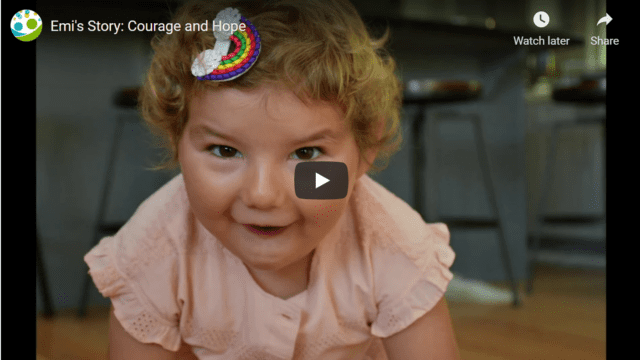
Video
Emi's Story: Courage and Hope
How learning pain management skills changed everything for this family.
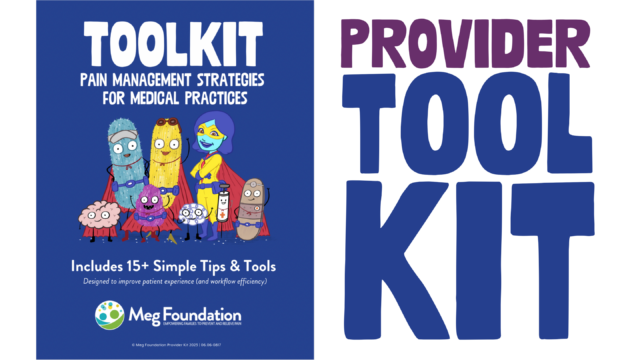
Book
Provider ToolKit
This interactive eBook makes it easy to learn all the ways our free pain management resources can be used to make life easier for you and your patients.

About the Author
Dr. Jody Thomas is a licensed clinical psychologist, and specialist in pediatric medical illness and trauma. A well-known expert in pediatric pain who teaches internationally on the subject, she is also a founder and the former Clinical Director of the Packard Pediatric Pain Rehabilitation Center at Stanford, and a former Assistant Professor at the Stanford University School of Medicine. Though she now lives in Denver, CO, she still serves as Adjunct Faculty for Stanford, providing supervision and teaching. As a consultant for the Lucile Packard Children’s Hospital at Stanford, she directs projects on the integration and innovation of pain management using tech-based intervention. Her passion for bringing together the power of medical science, technology and design to transform the way we think about kids and pain led her to her current focus but it’s her role as a mom of two that solidified her path in creating the Meg Foundation.
